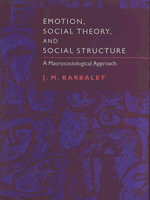2 - Emotion and rationality
Published online by Cambridge University Press: 22 September 2009
Summary
The conventional approach holds that emotion is the opposite of reason. But such a view is ultimately subverted by the fact that those who wish to suppress emotion in fully realizing reason are typically engaged by an emotional commitment to the project. Some of the key issues which arise through these currents are discussed in this chapter. Three approaches to the relationship between emotion and reason or rationality are identified: the conventional approach, in which the two are opposed; the critical approach, in which emotion supports rationality by providing it with salience and goal-formation; and the radical approach, in which emotion and rationality are seen to be continuous. Each approach is discussed in what follows.
Max Weber's treatment of rationality as oppositional to emotion represents the conventional approach in the following discussion The critical approach, in which the problems of rationality are solved by emotion, is then discussed. This approach has gained recent support in economic, psychological, and neurological literatures, and these are treated in what follows. While accepting that emotion supports reason, the critical approach is apprehensive about emotion's undermining of instrumental reason. The radical approach, on the other hand, fundamentally qualifies this concern by arguing that instrumental action is founded upon particular emotions. William James provides a version of the radical approach in this chapter. Indeed, while James and Weber apparently hold opposite views concerning the relationship between emotion and rationality, it is shown that they in fact converge.
- Type
- Chapter
- Information
- Emotion, Social Theory, and Social StructureA Macrosociological Approach, pp. 29 - 61Publisher: Cambridge University PressPrint publication year: 1998
- 1
- Cited by



